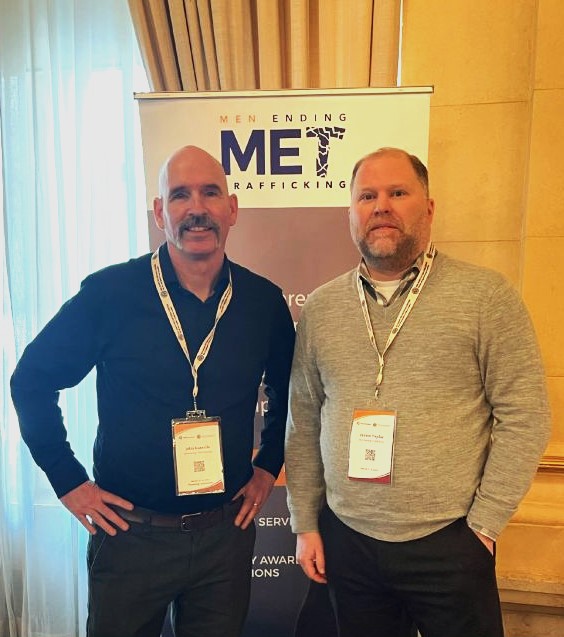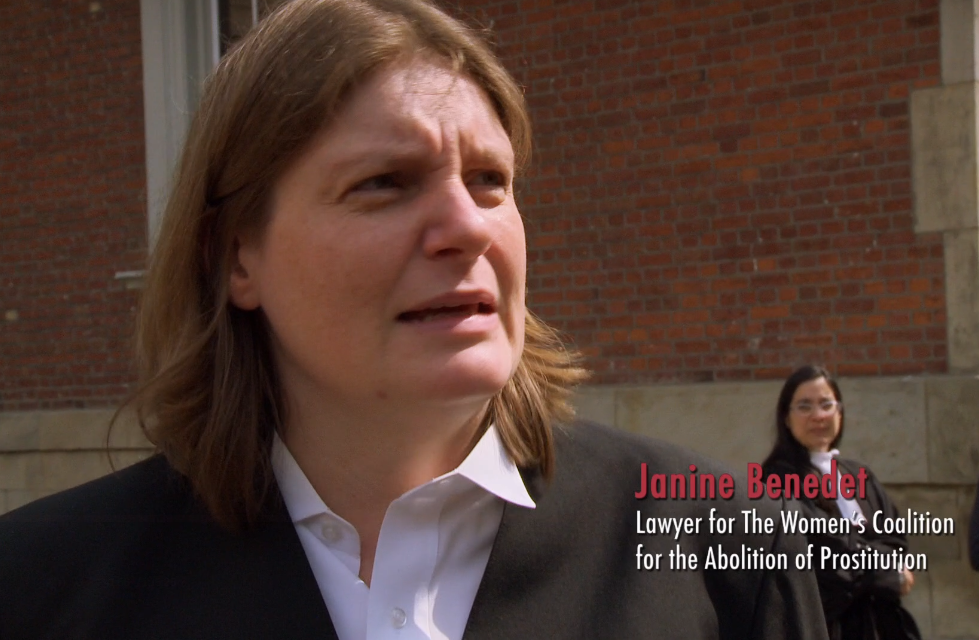A groundbreaking conference was held March 4-6 to imagine a Canada that no longer tolerates the funding of Commercial sexual exploitation of women and girls. Here’s what happened:
A frigid Winnipeg awaited Trevor Poplar (Men Ending Trafficking) and I as we flew away from a balmy 15 Celsius in Toronto. Upon arrival we were whisked by cab to the majestic Fort Garry hotel to meet with other members from the national committee that had spent the previous eight months planning the ‘Prosecuting Demand’ conference. Leading the team was Hennes Doltze who works to engage men against exploitation at The Peg’s Ma Mawi Wi Chi Itata Centre.

The committee has been dubbed “SBAN” (Sex Buyers Accountability Network) and is largely made up of people who run “john schools” that reform the behavior of men who have been charged with purchasing sexual services[i]. While these programs are overwhelmingly effective and provide a revenue source for women’s recovery programs, they are sadly underutilized.
Prior to 2014, Canada’s prostitution laws served to shoo away streetwalkers who were, in the public eye, considered a mere nuisance. A new legal scheme called the Protection of Communities and Exploited Persons Act (PCEPA) was devised under the then federal Justice Minister, Peter Mackay. Mr. MacKay was careful enough to understand the fraud and coercion that typically brings vulnerable young people into the sex trade and the exploitation[ii] that inevitably follows. Commercial sexual services would no longer be classified as an annoyance but as a (largely) gender-based crime[iii] that destroys bodies and souls. PCEPA prohibits prostitution and especially targets the economic driver behind human trafficking -the men who pay for it.

Provinces across our nation have largely ignored the 2014 national confession that prostitution is a crime of exploitation. We continue to wait for even one region to appropriately implement and enforce legal measures to address demand. Meanwhile, the money from sex buyers continues to flow into the pockets of human traffickers who, in turn, ensure a steady stream of new adolescent recruits.
SBAN members have individually encouraged their own provinces and municipalities to utilize appropriate enforcement practices, however, the Winnipeg conference shifted the approach by bringing together 150 delegates, including crown attorneys, police officers, analysts and policy makers. Sessions were taught by leading experts in their respective fields.

UBC Law Professor, Janine Benedet, kicked off the conference with analysis of the legal prohibition on prostitution. She was brilliant! Dr. Kari Johnston, Coordinator for Combating Trafficking in Human Beings, at OSCE (Organization for security and Co-operation in Europe) also addressed the crowd. The room fell deathly silent when Dr. Johnstone declared that not one of the 57 of their member countries, including Canada, is fulfilling their agreement to address “the demand for sexual exploitation”[iv].
As workshops were presented over a span of two days, evidence that we could turn the tide on human trafficking and other forms of sex trade violence mounted and a palatable air of enthusiasm infused the conference. Feedback from delegates confirmed the event was an astounding success. Be assured that SBAN will keep working on this file. The fruit of our labors, however, remains to be seen in policy reforms geared to discouraging the demand for commercial sexual exploitation.
Keep fighting for change. I’ll keep you posted from this end.
[i] Section 286.1 Obtaining sexual services for consideration, Criminal Code of Canada, “ Everyone who, in any place, obtains for consideration, or communicates with anyone for the purpose of obtaining for consideration, the sexual services of a person…”
[ii] Bill C-36, 2014, Technical Paper, P.3 “Bill C-36 reflects a significant paradigm shift away from the treatment of prostitution as “nuisance”, as found by the Supreme Court of Canada in Bedford, toward treatment of prostitution as a form of sexual exploitation that disproportionately and negatively impacts on women and girls.”
[iii] Ibid
[iv] OSCE ACTION PLAN TO COMBAT TRAFFICKING IN HUMAN BEINGS, July 24,2002. P.1


Thanks John for your continued work against sexual exploitation in its many facets. I am reminded many times to pray for you and your teams and for the assistance and recovery of the ladies.